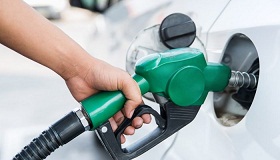BY OLOLADE JOHNSON
ILARO-YEWA, OGUN STATE, NIGERIA – Residents of Ilaro-Yewa, a prominent town in Ogun State, Nigeria, and its environs, have appealed to the Federal and State governments for intervention due to the high cost of petrol products, which has also affected other essential items.
The ancient town recently faced significant economic challenges, particularly due to the high cost of petrol.
According to an investigation by StarTrend International reporters, residents of Ilaro and its surrounding areas expressed dissatisfaction with certain unscrupulous marketers who allegedly raised their pump prices arbitrarily.
These residents claimed that, despite having tampered dispensing machines, these marketers, operating like a cabal, justified their actions by saying their tankers always had to “settle” at every checkpoint from Papalanto to Ilaro.
This issue has had a ripple effect, influencing the prices of various goods and services, thereby affecting the livelihoods of residents.
Petrol prices in Nigeria have always been a topic of national concern, but the situation in Ilaro-Yewa has reached alarming levels. Over the past few months, residents have witnessed a substantial increase in petrol prices. As of June 2024, the cost per liter has surged to around N750-N1000 from N550 at the beginning of the year, an increase of over 45%.
This steep rise is primarily attributed to the federal government’s removal of the fuel subsidy and supply chain disruptions.
Petrol marketers in the town claimed that since the industry was deregulated, they now buy their products from various oil farms that have also capitalized on deregulation to hike the price of bulk supplies.
The immediate and most noticeable effect of increased petrol prices is on transportation costs. In Ilaro-Yewa, the fare for motorcycle taxis (okadas) and minibuses/taxis has doubled. A journey that used to cost N300-400 now demands N800 or more.
This increase not only burdens daily commuters but also escalates the cost of goods transported into the town, as vendors transfer the additional fuel costs to consumers.
The high cost of petrol has a domino effect on the prices of essential goods and services: The cost of food items has skyrocketed. Staple foods like rice, beans, and garri have seen price hikes of between 200% to 500%.
For instance, a bag of rice that previously sold for N25,000 now costs N70,500 or more. This surge is due to increased transportation costs and the higher expense of running diesel-powered vehicles.
Access to healthcare has become more expensive. Clinics and hospitals, which rely on petrol for generators due to unreliable electricity supply, have raised their service charges. Medicines and medical supplies have also become pricier due to higher transportation costs.
Schools are not spared either. Many rely on petrol to power generators, ensuring a stable electricity supply for administrative purposes and running computers. Consequently, school fees have increased, making education less accessible to low-income families.
Local businesses, particularly those that depend on petrol for running generators, are struggling. Barbershops, cyber cafes, and other small enterprises have either increased their prices or reduced their operating hours, resulting in lower incomes and, in some cases, business closures.
The Ogun State government has attempted to mitigate the situation through various measures, including advocating for federal intervention and exploring alternative energy sources. However, these efforts have yielded limited success so far.
The high cost of petrol in Ilaro-Yewa, Ogun State, is a microcosm of a larger national issue affecting Nigeria. The resultant increase in the cost of goods and services has placed a significant financial strain on residents.
Addressing this challenge requires concerted efforts from both the government and the community to explore sustainable solutions, such as investing in renewable energy sources and improving the efficiency of supply chains, to stabilize petrol prices and, by extension, the cost of living.
 Startrend International Magazine For Your Latest News And Entertainment Gists
Startrend International Magazine For Your Latest News And Entertainment Gists




